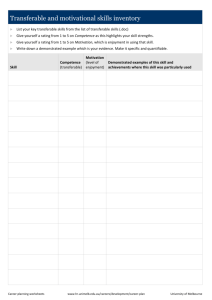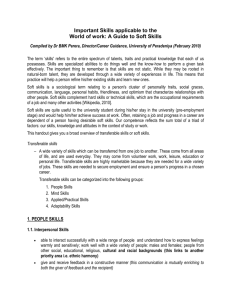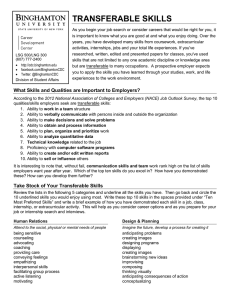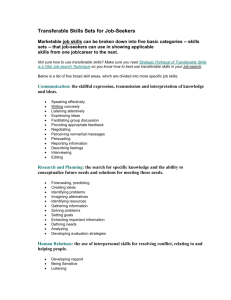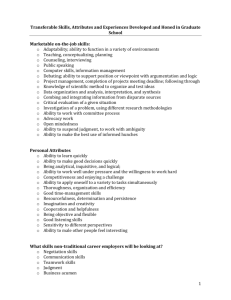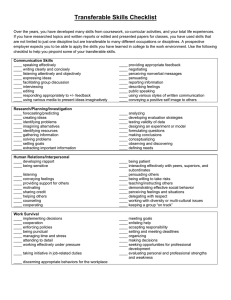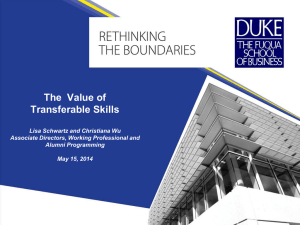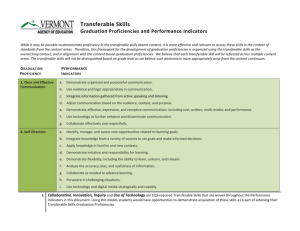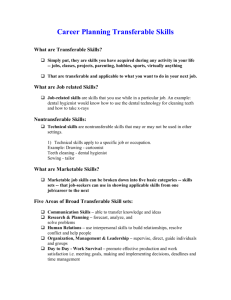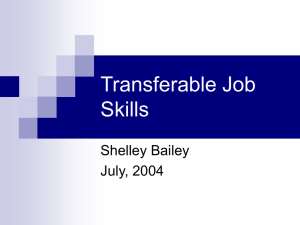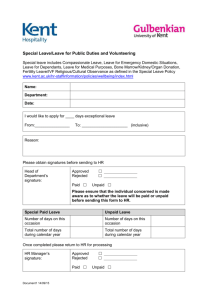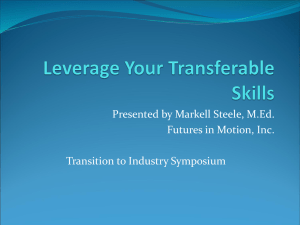Name
advertisement
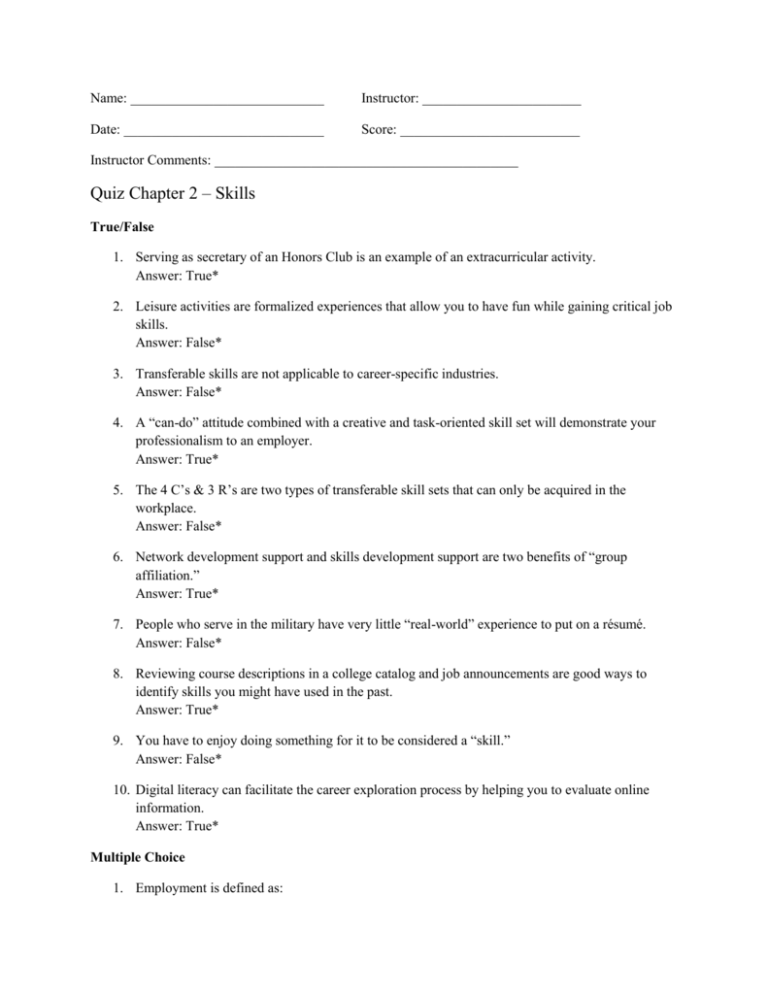
Name: ____________________________ Instructor: _______________________ Date: _____________________________ Score: __________________________ Instructor Comments: ____________________________________________ Quiz Chapter 2 – Skills True/False 1. Serving as secretary of an Honors Club is an example of an extracurricular activity. Answer: True* 2. Leisure activities are formalized experiences that allow you to have fun while gaining critical job skills. Answer: False* 3. Transferable skills are not applicable to career-specific industries. Answer: False* 4. A “can-do” attitude combined with a creative and task-oriented skill set will demonstrate your professionalism to an employer. Answer: True* 5. The 4 C’s & 3 R’s are two types of transferable skill sets that can only be acquired in the workplace. Answer: False* 6. Network development support and skills development support are two benefits of “group affiliation.” Answer: True* 7. People who serve in the military have very little “real-world” experience to put on a résumé. Answer: False* 8. Reviewing course descriptions in a college catalog and job announcements are good ways to identify skills you might have used in the past. Answer: True* 9. You have to enjoy doing something for it to be considered a “skill.” Answer: False* 10. Digital literacy can facilitate the career exploration process by helping you to evaluate online information. Answer: True* Multiple Choice 1. Employment is defined as: a. Any paid part-time/full-time, short-term/long-term, temporary/permanent work experience* b. Any unpaid part-time/full-time, short-term/long-term, temporary/permanent work experience c. Any experience where you acquire transferable skills d. A series of paid or unpaid tasks that lead to career growth 2. Which of the following is not an experiential learning experience: a. Paid federal internship b. Business management class* c. Unpaid internship with the Girl Scouts of America d. Red Cross volunteer 3. The following is an example of a career-specific or technical skill set: a. Oral communication b. Blueprint reading* c. Organization d. Teamwork 4. The 4 C’s describe those transferable skills that are valuable to an employer. They are: a. Confidence, control, compassion, collaboration b. Critical thinking, communication, collaboration, creativity* c. Creativity, concern, contemplation, critical thinking d. Collaboration, compassion, confidence, constancy 5. An individual who commits to the concept of “lifelong learning”: a. Is also known as a “professional student” b. Will be viewed unfavorably by employers c. Will take additional courses to prepare for a new career field or career advancement* d. Is probably unwilling to commit to a personal relationship 6. Someone who is skilled in “interviewing for information” can: a. Draw out subjects with incisive questioning* b. Do well in an interview c. Multitask successfully d. Define goals and objectives 7. Someone who can achieve results by assigning tasks to others is skilled in: a. Initiating change b. Monitoring c. Delegating* d. Making decisions 8. Someone who can sketch, draw, illustrate, and photograph, has the ability to: a. Write b. Portray images* c. Synthesize d. Generate ideas 9. A growth mindset: a. Can limit opportunities for growth b. Is a term that describes technological growth c. Enables an individual to learn from challenges* d. Can inhibit a fixed mindset Short Answer 1. Identify three skills that can be developed by participating in a college debate team. Answer: Any of the following: critical thinking, presentation skills, time management, organizational skills, communication, analytical thinking, teamwork, leadership 2. Identify three skills that one can acquire by overcoming adversity, such as being raised in a ganginfested neighborhood and then going on to graduate from college. Answer: Any of the following: decision-making, goal-setting, persistence, task-orientation, responsibility, perseverance 3. The ability to synthesize and transmit ideas in both written and oral form describes which of the 4 C’s? Answer: Communication Completion 1. Despite a high unemployment rate nationwide, many employers are still having difficulty hiring employees due to a(n)___________gap. Answer: Skills 2. Knowing how to manage and utilize information, media, and technology successfully is known as ______________________. Answer: Digital literacy
